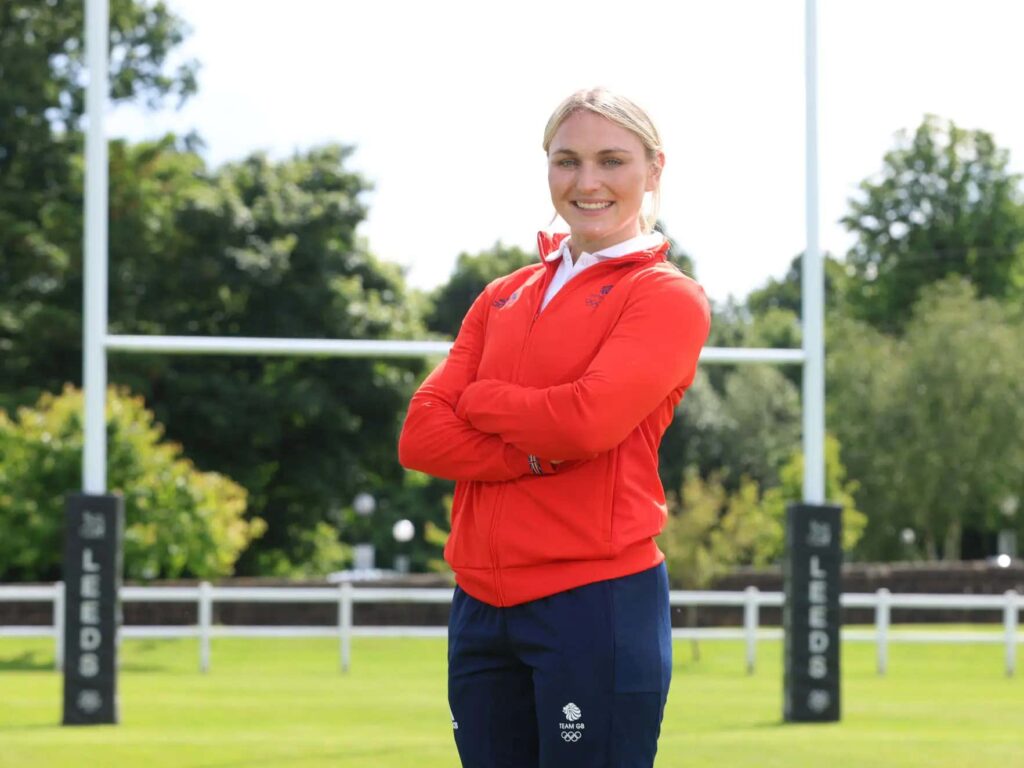As you make your way through this vale of tears called life, you will occasionally come across people arguing over things that have absolutely nothing to do with you. Maybe it's at work. Maybe it's with your spouse's family. Maybe it's with strangers in public. Whoever it is or wherever it is, when these conflicts arise and have nothing to do with you, it's best to just watch. In other words, pull up a chair and enjoy the fight.
Somehow, this dynamic is present whenever sports and female body culture intersect: whether it's when ESPN Magazine publishes its Body Issue or when Livi Dunn poses for the SI Swimsuit Issue.
…Someone, somewhere, will complain that women are exploited for the male gaze. Our society is The Handmaid's TaleIn fact, I know people who want to get rid of NFL cheerleaders because they objectify the female form, and I'm not kidding.
Well, this is one such moment from the above ad campaign by Bluebella Lingerie.
The Telegraph – Martina Navratilova has led a backlash against a “regressive” campaign which features Olympic rugby players from Team GB in lingerie.
Former swimmer Sharon Davies and former British long-distance runner Mara Yamauchi also expressed their disappointment with the photoshoot, which aimed to change the perception that a strong female body is not 'feminine'.
Ellie Boatman, Jasmine Joyce and Celia Kwansa… have joined lingerie company Bluebella's #StrongIsBeautiful campaign…
Navratilova, the 18-time major singles title winner, and other leading activists in women's sport were not impressed, saying the move “seems to me very regressive and sexist.”
Davis and Yamauchi said the campaign won't help solve the problem. Davis wrote to X: “Holy sh*t, this is an utterly disgraceful campaign. Who came up with this stupid idea? Yes, let's put professional female athletes in pornographic underwear! Extremely regressive… another stereotype.”
Yamauchi called the campaign “exploitative, degrading, sexist and regressive nonsense.” “Of course, it's aimed at men,” he added. “Portraying women as sexual objects is not going to inspire teenage girls to take up sports.”
The #StrongIsBeautiful campaign has been running for the past eight years and has previously featured female athletes from the Rio and Tokyo Olympic Games.
That last sentence is probably the most telling. This ad campaign has been running for eight years and is the third at the Summer Olympics, but we've only just started hearing about it recently. Why? Is it because the underwear has gotten smaller, or the photos have gotten more uncomfortable? Or is it because our reactions to underwear have changed? I think it's the latter.
But then again, this isn't my fight. I'm not Bluebella's target demographic, nor am I the kind of person who looks at grown women willing to expose their bodies and assumes they must have been kidnapped by the same Eurotrash who kidnapped Liam Neeson's daughter. photographYou're just looking at people who are making a living and not hurting anyone, but you're fighting among yourselves.
Still, from a neutral perspective, I'd appreciate it if those same NCAA coaches who were so infuriated by the success of Navratilova, Davis, Yamaguchi and Livi Dunn could hold a summit meeting and decide exactly where we all should draw the line.
Because now they seem to have decided that going topless at a protest or pride parade is empowering. For example, when Lena Dunham got naked on HBO it was about subverting the patriarchy and shattering traditional norms of female beauty. Yet when an objectively attractive gymnast models in a bikini she is attacked. And when an Olympic athlete poses for fashion photographers in lingerie it is “exploitative, degrading, sexist and regressive travesty.”
When Spinal Tap was accused of including sexist language on their album cover, this is what they said: Smell the gloves:
So I'm asking on our behalf that you set the standard and help us know where the fine line is — or you don't. Unlike you, I'm not here to tell grown women what to do.


